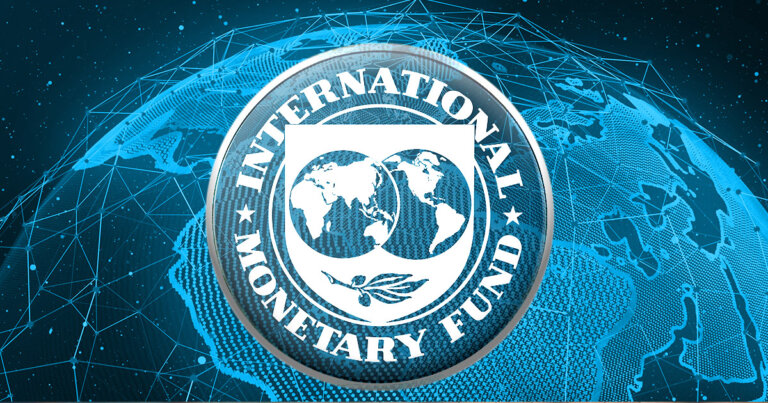 Global Stablecoins need governing body, pose risk to financial stability says IMF, FSB in new G20 report
Global Stablecoins need governing body, pose risk to financial stability says IMF, FSB in new G20 report Global Stablecoins need governing body, pose risk to financial stability says IMF, FSB in new G20 report
IMF and FSB map out global crypto regulatory roadmap to bolster financial stability and integrity.

Cover art/illustration via CryptoSlate. Image includes combined content which may include AI-generated content.
The International Monetary Fund (IMF) and the Financial Stability Board (FSB) published a report commissioned by G20 under India’s leadership, outlining a comprehensive framework for regulating crypto-assets like Bitcoin and stablecoins today, Sept. 7.
The paper synthesizes the policy recommendations from both organizations to help countries address the financial stability and integrity risks posed by the rapid growth of crypto-assets.
Risks Posed by Crypto-Assets and Stablecoins
The report argues that crypto-assets could undermine monetary policy effectiveness, increase fiscal risks for governments, and reduce the efficacy of capital flow management measures. Widespread adoption may also amplify financial stability risks by increasing volatility interconnections and transmitting shocks faster across the global financial system. Specifically, the report describes stablecoins as a “significant risk,” stating,
“Global Stablecoins (GSCs) may transmit volatility more abruptly than other crypto-assets and may cause significant risk to financial stability… These risks may arise particularly if, over time, households and businesses in some economies come to hold substantial portions of their wealth in GSCs, rather than in local currencies.”
A GSC is a stablecoin with “potential reach and adoption across multiple jurisdictions.” The report further asserted that “macroeconomic risks associated with GSCs may be higher than other stablecoins.”
The IMF and FSB call for a multi-pronged policy response to mitigate these macroeconomic and financial stability risks. This includes strengthening monetary policy frameworks, guarding against excessive capital flow volatility, addressing fiscal risks, implementing anti-money laundering standards, and enacting comprehensive crypto-asset regulation.
Recommendations and Regulatory Measures
The FSB has additionally developed recommendations to ensure crypto-assets and markets are subject to “same activity, same risk, same regulation,” establishing a minimum baseline countries should meet. The FATF standards aim to mitigate illicit financing risks.
The recommendations that, if implemented, could transform the regulatory landscape for cryptocurrencies and stablecoins.
International Organization of Securities Commissions (IOSCO) seeks to apply its principles to crypto-assets to protect market integrity. The report also recommends that some emerging markets may require additional targeted measures based on country-specific vulnerabilities. However, these should not substitute for macroeconomic policies, strong institutions, and comprehensive regulation.
Finally, the IMF and FSB lay a roadmap for “effective” and coordinated implementation of the crypto-asset policy framework. This includes capacity building beyond G20 members, enhancing global coordination and cooperation, and addressing data gaps in the rapidly evolving crypto-asset ecosystem.
As per the report, the authorities’ readiness to regulate and supervise global stablecoin arrangements is being highlighted as a core recommendation. It suggests that authorities should have and utilize the appropriate powers, tools, and adequate resources to effectively regulate, supervise, and oversee a GSC arrangement and its associated functions and activities.
The report also underscores the importance of cross-border cooperation, coordination, and information sharing among domestic and international authorities. It proposes that this collaboration will foster efficient and effective communication, information sharing, and consultation, thereby encouraging consistency of regulatory and supervisory outcomes.
Furthermore, the report emphasizes the need for authorities to require crypto-asset issuers and service providers to establish a comprehensive governance framework with clear and direct lines of responsibility and accountability.
Risk Management and Data Collection
In addition to the focus on governance, the report highlights the importance of stringent risk management frameworks for crypto-asset service providers. It calls upon authorities to require crypto-asset issuers to address financial stability risks, an approach necessary to achieve regulatory outcomes comparable to those in traditional finance.
The document also delves into the need for robust data collection, recording, and reporting systems by crypto-asset issuers and service providers. It calls for establishing comprehensive, clear, and transparent disclosure standards and identifying financial stability risks arising from interconnections and interdependencies within the crypto-asset ecosystem.
The paper will be discussed at the G20 summit in India later this month and can be read in full on the FSB website.
























































